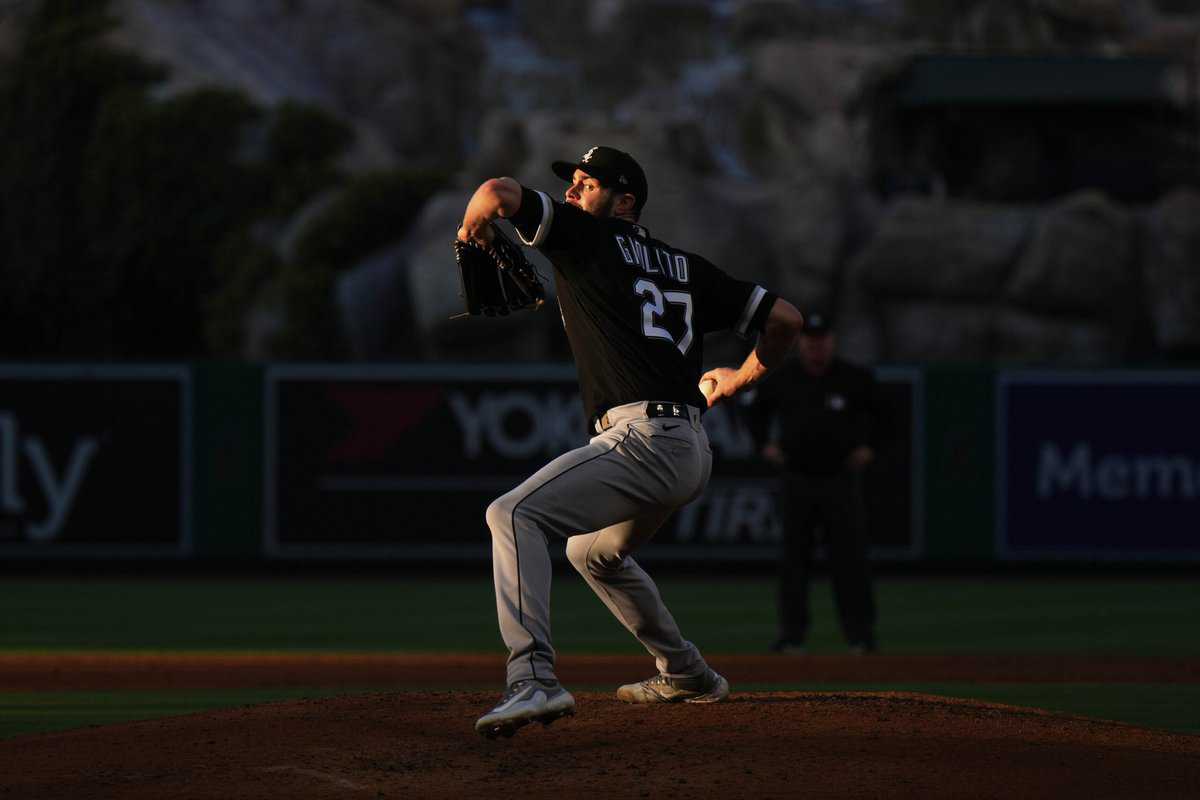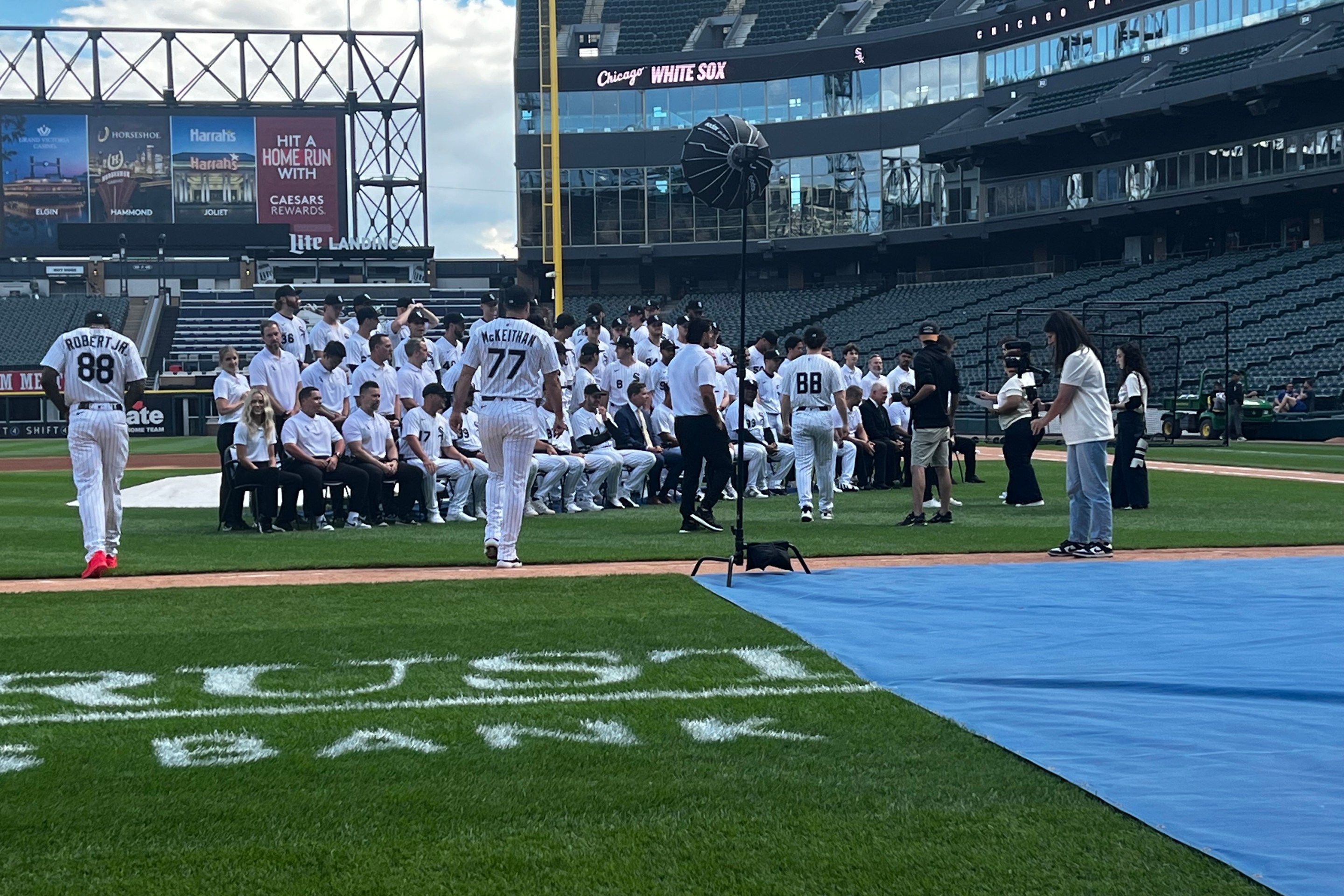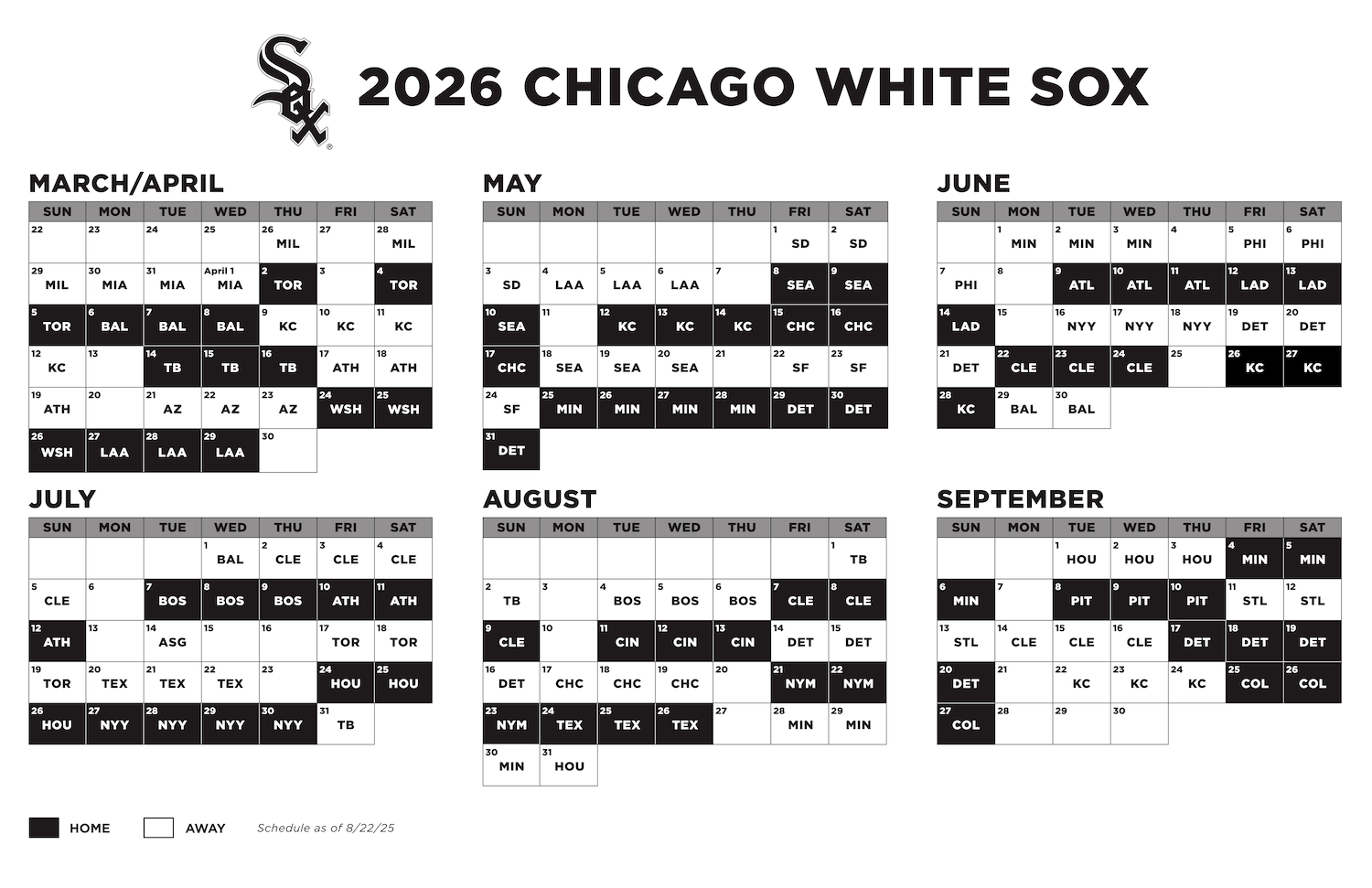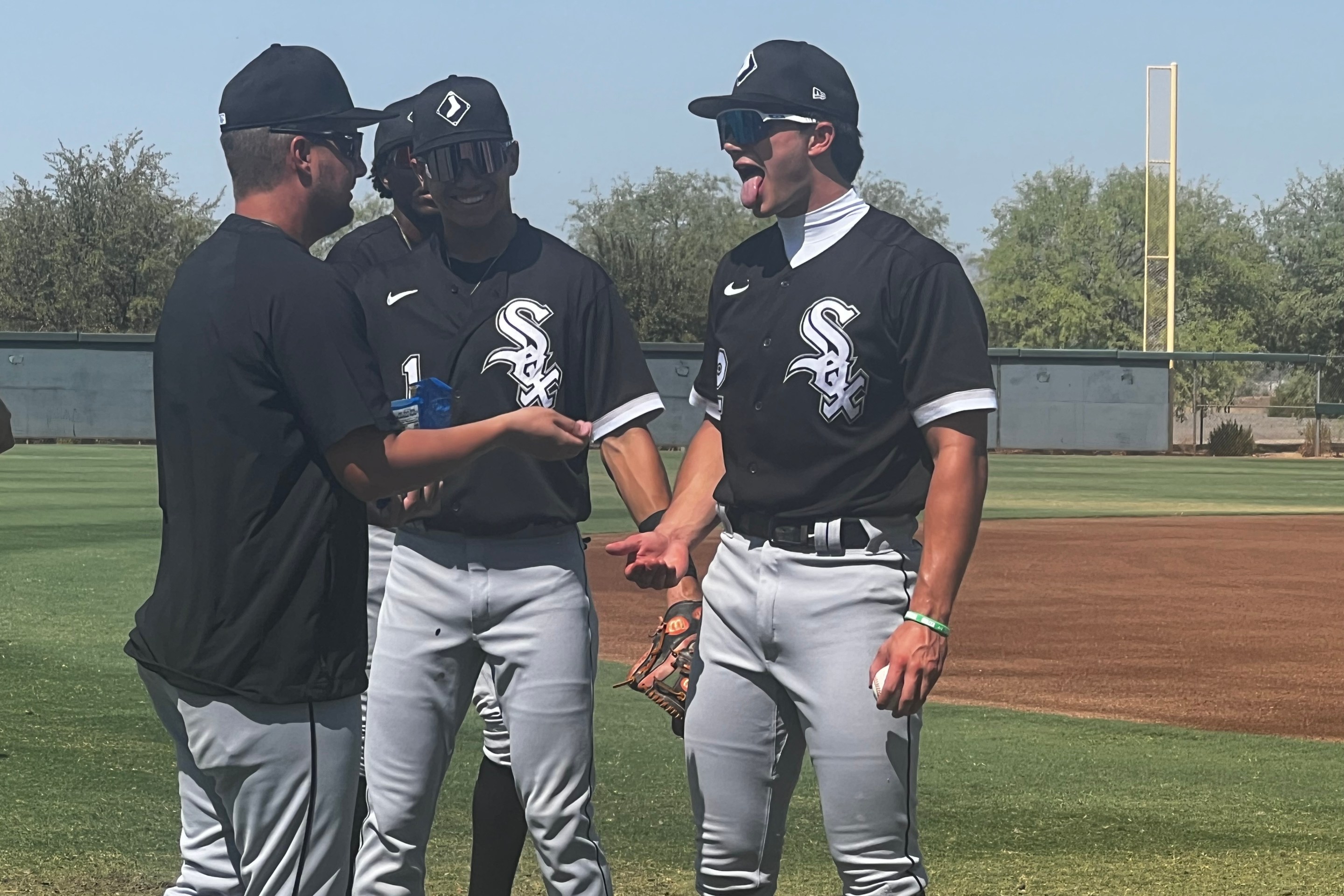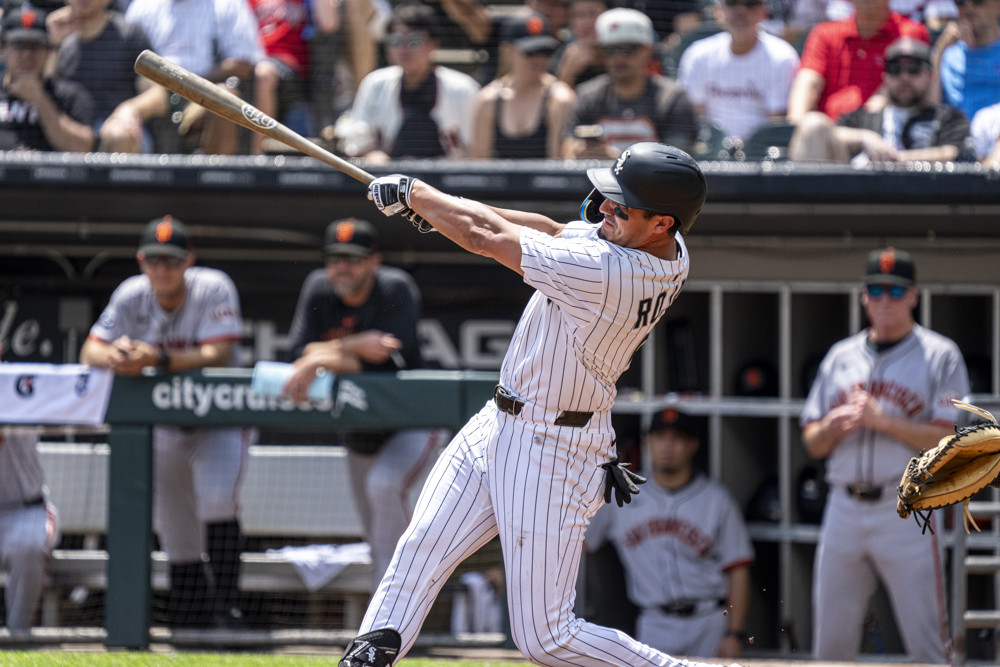The White Sox started shoveling dirt on the grave of their second rebuild when they traded Lucas Giolito and Reynaldo López to the Los Angeles Angels last Wednesday, the first of three deals that officially marked the end of a stunted era. Each one of these trades symbolizes the way the White Sox's attempt at sustainable success never quite took flight. These are their stories.
Theoretically, the Adam Eaton trade was an irrefutable win for the White Sox. For an OBP-oriented corner outfielder who turned out to be one knee injury away from being average at best, they received Lucas Giolito, Reynaldo López and Dane Dunning, the last of whom turned into Lance Lynn.
Yet the full impact of such a transactional success wasn't exactly felt, because Giolito and López were seldom sterling simultaneously. López's best season coincided with Giolito's worst, and Giolito's resurgence overlapped with López's journey through a blurry desert. When López underwent eye surgery, and regained his ability to literally focus, he went from non-tender candidate to a guy capable of high-leverage opportunities ... just in time for Giolito to lose the life on his fastball and drift back towards replacement-level.
This season finally felt like a compromise that allowed them both to be useful. Giolito might not get the kind of Cy Young support he received in three consecutive years, but he's still a starter teams other teams wanted. López recovered from an ugly start to the season to be a perfectly capable medium-leverage option who is occasionally capable of better, but not so much so that he should face the toughest part of the lineup in every single appearance like Pedro Grifol had him doing early on.
It took seven years, but they finally found a way to be sustainable contributors at the same time:
| Giolito bWAR | Year | López bWAR |
|---|---|---|
| 1.5 | 2017 | 0.1 |
| -1.3 | 2018 | 3.1 |
| 5.5 | 2019 | 0.3 |
| 2.2* | 2020 | -1.6 |
| 4.3 | 2021 | 0.9 |
| 0.5 | 2022 | 1.5 |
| 2.7 | 2023 | 0.7 |
| 15.4 | Total | 5.0 |
As luck would have it, just about everybody else on the roster fell apart.
This kind of alternating pattern should have been more of a curiosity than something that actually hurt the team, but as the long arc of the White Sox rebuild snapped at the halfway point and plummeted in the abyss, it became evident how much of the franchise's potential success required sensational results from the original trades, rather than so-so outcomes that could be supplemented elsewhere.
In a 2021 season that stands as the only year the Sox can consider a true success, they had the highest yield of contributions from the founding trades:
- Lance Lynn: Third-place Cy Young finish
- Lucas Giolito: Down-ballot Cy Young support
- Dylan Cease: 166 innings of sub-4.00 ERA
- Reynaldo López: Useful swingman
- Michael Kopech: High-leverage relief
- Yoán Moncada: Good-glove, good-OBP third baseman
Eloy Jiménez was the only guy who didn't put together a satisfactory season. He missed the entire first half and then faded late, leaving only a strong August. Even then, the timing of his only good month helped to seal the AL Central.
A year later, Cease and López took major steps forward, but Giolito and Lynn struggled with injuries and ineffectiveness, Moncada's game collapsed, Kopech was short of a success as a starter, and Jiménez once again played a partial season.
Perhaps the Sox would've been able to overcome this stagnation if they were able to source impact players from development, free agency or less seismic trades. Instead, all the Sox had to show for drafting in the top five were Nick Madrigal and Andrew Vaughn, neither of whom helped the core, either by themselves or via trade. Free agency had more misses than hits, including a franchise-record signing designed to have a muted effect. As for trades, Hahn couldn't really figure out a way to make them happen until now.
Individually, Giolito and López were success stories. They performed well enough to swing the Eaton trade as a win by themselves, with the contributions of Lynn (née Dunning) running up the score. At the same time, the two of them taken together played their own part in a cycle of seasons that consistently produced a sum less than its parts. They can take some cold comfort in knowing it had nothing to do with their type of talent, only timing.
